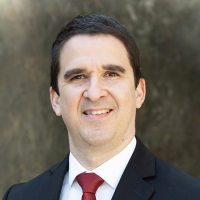 MICHAEL R. BLOOMBERG is a Johns Hopkins alumnus, founder of Bloomberg LP and Bloomberg Philanthropies, World Health Organization Global Ambassador for Noncommunicable Diseases, UN Secretary-General’s Special Envoy for Climate Action, and former New York City mayor.
MICHAEL R. BLOOMBERG is a Johns Hopkins alumnus, founder of Bloomberg LP and Bloomberg Philanthropies, World Health Organization Global Ambassador for Noncommunicable Diseases, UN Secretary-General’s Special Envoy for Climate Action, and former New York City mayor.
He is an entrepreneur and philanthropist who served as mayor of New York City from 2002-2013 after leading the company he started in 1981 for 20 years. Since leaving City Hall, he has resumed leadership of Bloomberg LP.
Bloomberg was elected mayor less than two months after the terrorist attacks of September 11, 2001. Under his leadership, the city rebounded faster and stronger than expected on issues ranging from education to health to economic development.
A lifelong philanthropist, Bloomberg founded Bloomberg Philanthropies, which focuses on five main areas: public health, education, the environment, the arts, and government innovation. He also leads a number of bi-partisan coalitions on urgent issues, including climate change, illegal guns, immigration reform, and infrastructure investment. In January 2013, he made the $350 million gift that established the Bloomberg Distinguished Professorships and provided undergraduate financial aid.
Bloomberg graduated from Johns Hopkins University and Harvard Business School.
Held by Filipe Campante
 FILIPE CAMPANTE, Ph.D., is the Bloomberg Distinguished Associate Professor of International Economics at the Johns Hopkins University School of Advanced International Studies (SAIS) and at the Department of Economics at the Johns Hopkins Krieger School of Arts and Sciences. From 2019 to 2021, he served as the Vice Dean for Education and Academic Affairs at SAIS. Campante is interested in political economy, development economics, and urban/regional issues. His research looks at what constrains politicians and policy makers beyond formal checks and balances: cultural norms, institutions, media, political protest. In particular, his research has focused on how these informal constraints are affected by the spatial distribution of people and economic activity, by access to information, by the evolution of cultural norms, and by the structure of the economy.
FILIPE CAMPANTE, Ph.D., is the Bloomberg Distinguished Associate Professor of International Economics at the Johns Hopkins University School of Advanced International Studies (SAIS) and at the Department of Economics at the Johns Hopkins Krieger School of Arts and Sciences. From 2019 to 2021, he served as the Vice Dean for Education and Academic Affairs at SAIS. Campante is interested in political economy, development economics, and urban/regional issues. His research looks at what constrains politicians and policy makers beyond formal checks and balances: cultural norms, institutions, media, political protest. In particular, his research has focused on how these informal constraints are affected by the spatial distribution of people and economic activity, by access to information, by the evolution of cultural norms, and by the structure of the economy.
Campante’s work has appeared in leading academic journals such as the American Economic Review and the Quarterly Journal of Economics, among others. It has also received multiple mentions in outlets such as the New York Times, Science, NPR, Washington Post, The Economist, Los Angeles Times, Foreign Affairs, Politico, among others. Campante is a Faculty Research Fellow at the National Bureau of Economic Research (NBER), and was previously Associate Professor of Public Policy at Harvard University. Born and raised in Rio de Janeiro, Brazil, he holds a PhD from Harvard University, an MA from the Pontifical Catholic University of Rio de Janeiro, and a BA from the Federal University of Rio de Janeiro, all in economics.
 MICHAEL R. BLOOMBERG is a Johns Hopkins alumnus, founder of Bloomberg LP and Bloomberg Philanthropies, World Health Organization Global Ambassador for Noncommunicable Diseases, UN Secretary-General’s Special Envoy for Climate Action, and former New York City mayor.
MICHAEL R. BLOOMBERG is a Johns Hopkins alumnus, founder of Bloomberg LP and Bloomberg Philanthropies, World Health Organization Global Ambassador for Noncommunicable Diseases, UN Secretary-General’s Special Envoy for Climate Action, and former New York City mayor.